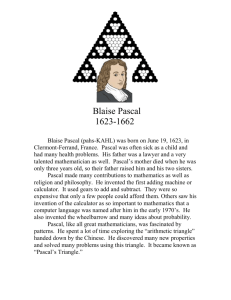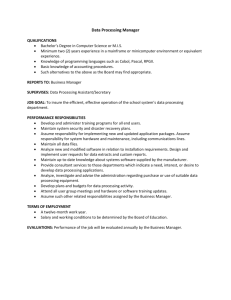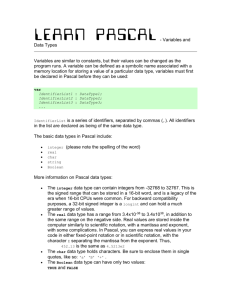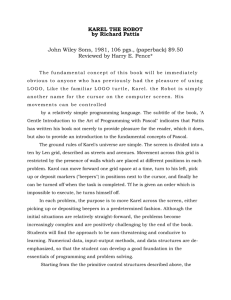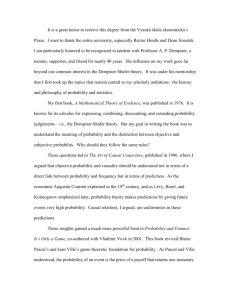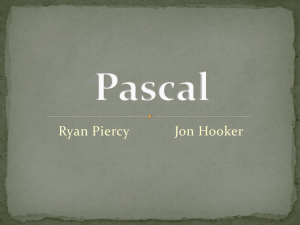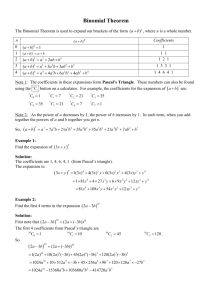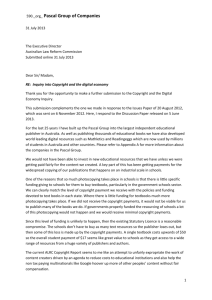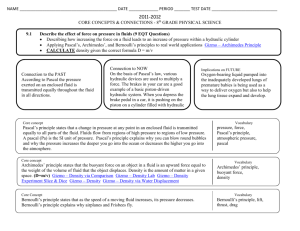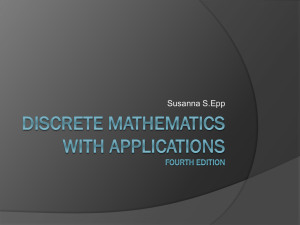“Real philosophy consists in mocking philosophy, real morality in
advertisement
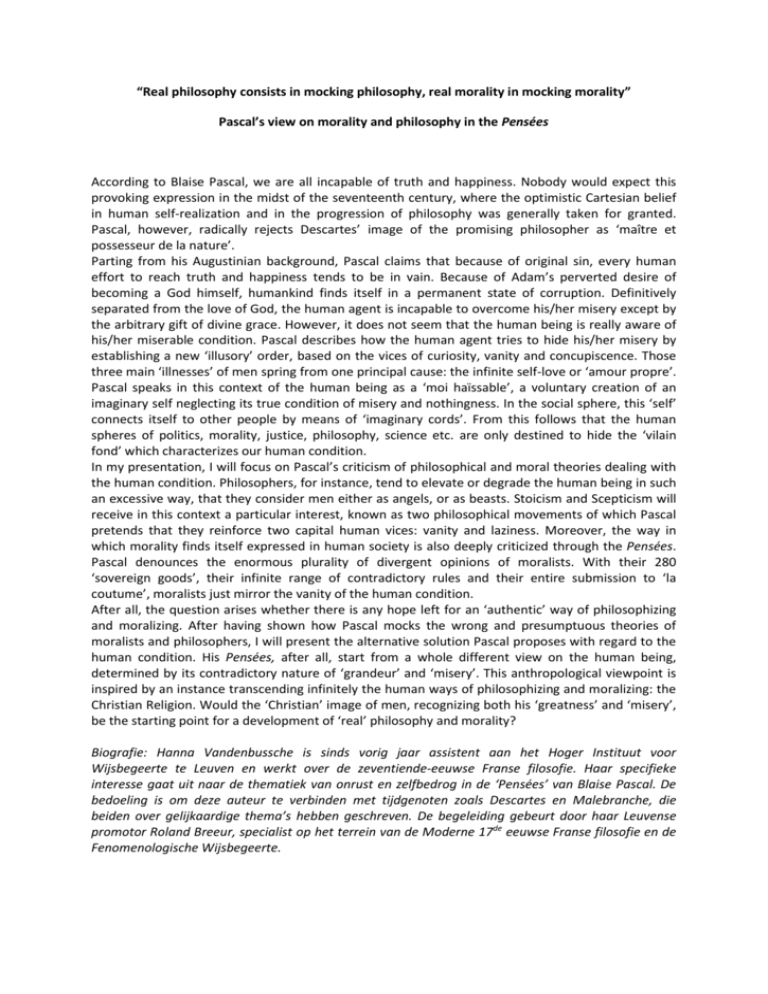
“Real philosophy consists in mocking philosophy, real morality in mocking morality” Pascal’s view on morality and philosophy in the Pensées According to Blaise Pascal, we are all incapable of truth and happiness. Nobody would expect this provoking expression in the midst of the seventeenth century, where the optimistic Cartesian belief in human self-realization and in the progression of philosophy was generally taken for granted. Pascal, however, radically rejects Descartes’ image of the promising philosopher as ‘maître et possesseur de la nature’. Parting from his Augustinian background, Pascal claims that because of original sin, every human effort to reach truth and happiness tends to be in vain. Because of Adam’s perverted desire of becoming a God himself, humankind finds itself in a permanent state of corruption. Definitively separated from the love of God, the human agent is incapable to overcome his/her misery except by the arbitrary gift of divine grace. However, it does not seem that the human being is really aware of his/her miserable condition. Pascal describes how the human agent tries to hide his/her misery by establishing a new ‘illusory’ order, based on the vices of curiosity, vanity and concupiscence. Those three main ‘illnesses’ of men spring from one principal cause: the infinite self-love or ‘amour propre’. Pascal speaks in this context of the human being as a ‘moi haïssable’, a voluntary creation of an imaginary self neglecting its true condition of misery and nothingness. In the social sphere, this ‘self’ connects itself to other people by means of ‘imaginary cords’. From this follows that the human spheres of politics, morality, justice, philosophy, science etc. are only destined to hide the ‘vilain fond’ which characterizes our human condition. In my presentation, I will focus on Pascal’s criticism of philosophical and moral theories dealing with the human condition. Philosophers, for instance, tend to elevate or degrade the human being in such an excessive way, that they consider men either as angels, or as beasts. Stoicism and Scepticism will receive in this context a particular interest, known as two philosophical movements of which Pascal pretends that they reinforce two capital human vices: vanity and laziness. Moreover, the way in which morality finds itself expressed in human society is also deeply criticized through the Pensées. Pascal denounces the enormous plurality of divergent opinions of moralists. With their 280 ‘sovereign goods’, their infinite range of contradictory rules and their entire submission to ‘la coutume’, moralists just mirror the vanity of the human condition. After all, the question arises whether there is any hope left for an ‘authentic’ way of philosophizing and moralizing. After having shown how Pascal mocks the wrong and presumptuous theories of moralists and philosophers, I will present the alternative solution Pascal proposes with regard to the human condition. His Pensées, after all, start from a whole different view on the human being, determined by its contradictory nature of ‘grandeur’ and ‘misery’. This anthropological viewpoint is inspired by an instance transcending infinitely the human ways of philosophizing and moralizing: the Christian Religion. Would the ‘Christian’ image of men, recognizing both his ‘greatness’ and ‘misery’, be the starting point for a development of ‘real’ philosophy and morality? Biografie: Hanna Vandenbussche is sinds vorig jaar assistent aan het Hoger Instituut voor Wijsbegeerte te Leuven en werkt over de zeventiende-eeuwse Franse filosofie. Haar specifieke interesse gaat uit naar de thematiek van onrust en zelfbedrog in de ‘Pensées’ van Blaise Pascal. De bedoeling is om deze auteur te verbinden met tijdgenoten zoals Descartes en Malebranche, die beiden over gelijkaardige thema’s hebben geschreven. De begeleiding gebeurt door haar Leuvense promotor Roland Breeur, specialist op het terrein van de Moderne 17de eeuwse Franse filosofie en de Fenomenologische Wijsbegeerte.
